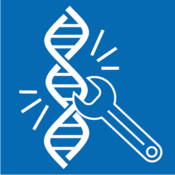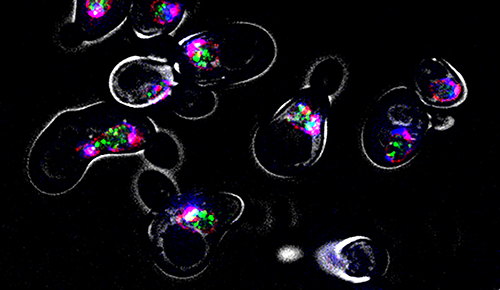Genome Stability and DNA Repair at IMB

DNA is frequently damaged by exposure to exogenous factors such as UV radiation and mutagenic chemicals, as well as endogenous processes such as errors during replication, telomere loss and reactive oxygen species produced by metabolic reactions. This damage can lead to mutations and chromosomal rearrangements that contribute to cell death, ageing, and cancer. Consequently, cells must be highly efficient at detecting and repairing DNA damage in order to survive. A major focus of IMB’s research is to understand the molecular mechanisms that cells use to repair damaged DNA and maintain genome stability.
IMB coordinates the SFB 1361 research initiative, which is the largest network on DNA repair and genome stability research in Germany. Several of IMB’s international conferences also focus on DNA repair themes.
Examples of research in genome stability at IMB include:
- Telomerase biogenesis and regulation
- Regulation of telomere length by TERRA and R-loops
- Mechanisms underlying the formation of chromosome translocations in cancer
- Coordination of DNA repair and replication
- Decoding DNA damage signalling using proteomics
